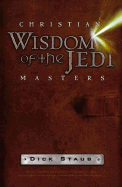Been away for a week at a Bible Conference in Cedar Falls, Iowa. Back to that in a day or two when we get back to Nassau.
In the meantime, I’m a bit farther into McLaren’s interestingly expressed ruminations on hell.
I can’t say I disagree with everything that gurgles up from the sometimes contrived dialogues – some of it’s about as “scriptural” as you can get.
On the other hand, what I find distressing are the arguments from emotion, feeling and conviction as well as from strictly human views of human justice – without clear acknowledgement that perhaps God’s point of view is quite different.
Not that I don’t understand “where it’s coming from”, but it’s a set of presuppositions that’s almost as easily assailed as the extreme fundamental positions he constantly whacks at with his verbal bat.
In his “deconstruction” of hell, he seems to posit that the concept of such a “place” (or thing, or whatever you want to call it) is of human origin … since one can find echoes of our modern concept and bits and pieces of various aspects of it in different cultures and different ages. In other words, somehow we (modern Christians, essentially) have managed to synthesise hell.
Personally, I don’t think this recognizes another possibility … which is clearly evidenced in Romans 1 a la Blaise Pascal’s suggestion of a “universal God shaped vacuum” - that there might actually be a "universal concept" of hell.
Don Richardson (of “Peace Child” fame) wrote another interesting book on aspects of this possibility “Eternity in their Hearts”, examining apparently auto-genetic versions of a “God becoming man” myth occurring in primitive cultures around the world (e.g. the Quetzalcoatl of the central Mexican cultures).
So … nothing against the idea of “deconstructing” hell, but what if it’s something from deep inside the human psyche?
Bottom line here … I'm not comfortable with arguments from whatever we feel or think and then making the facts fit. There’s a particularly egregious example of this on pg. 77 of the book, where there’s a rather cavalier reinterpretation of Jesus’ use of the words “eternal life” – it so easily becomes “life of the ages” in the mouth of one of the book’s chief apologists. Maybe he’s right, but I’d like a bit of a better explanation than just an “I think that Jesus means …”
Frustrating, all of this. Because I agree with so many of McLaren’s propositions … especially that we often read into scripture words and concepts that simply aren’t there! (Back to pg. 77 where we are reminded that Jesus says many chose the “broad way that leads to destruction”. How many sermons on hell have those of us in “fundamentalist” circles heard preached from that passage?!?)
I’m not quite finished … final judgement is suspended for now.
PS – I’m also looking at a reader preview edition of George Barna’s
“Revolution” from Tyndale. Easy reading. Heavy stuff. Due October. Don’t miss it.
 Wiley's Jossey-Bass imprint has some fantastically intriguing titles in their list of Religion titles.
Wiley's Jossey-Bass imprint has some fantastically intriguing titles in their list of Religion titles. Interesting story ... I seldom wear slogan-oriented t-shirts, but I have a promotional one the folks at Jossey-Bass kindly handed out at a recent booksellers convention. I was wearing it - un-self-consciously - in the Mall at Millenia in Orlando at the Cingular Store. A British tourist and his family who were browsing exited the store with a breezy "May the Force be with you, Brother." It took me a couple minutes to figure out why. If my wife hadn't been with me, I might be scratching my head yet!
Interesting story ... I seldom wear slogan-oriented t-shirts, but I have a promotional one the folks at Jossey-Bass kindly handed out at a recent booksellers convention. I was wearing it - un-self-consciously - in the Mall at Millenia in Orlando at the Cingular Store. A British tourist and his family who were browsing exited the store with a breezy "May the Force be with you, Brother." It took me a couple minutes to figure out why. If my wife hadn't been with me, I might be scratching my head yet!
 In our case I almost - some days - wish they would disappear.
In our case I almost - some days - wish they would disappear.

